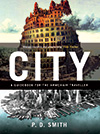Links and loose ends
16 March 2008 | academia, Atomic Age, cold war, Maryanne Wolf, Writing & Poetry | 5 comments
If you are a published writer in the UK you probably know that if you register with PLR you can receive a very modest payment if your books are borrowed from a public library. What you might not know, however, is that the government intends to cut the amount of money it gives to PLR in the future, which of course means less money for writers. If you want to let Gordon Brown know what you think about this, you can sign an e-petition on the 10 Downing Street website.
Apparently, hundreds of UK veterans who witnessed nuclear tests in the 1950s have joined one of the largest compensation claims against the Ministry of Defence. There's a fascinating piece on this by Helena Merriman at the BBC. She interviewed one witness, Bob Malcolmson, who was an 18-year-old radio operator on HMS Diana at the time. He saw a 98-kiloton explosion: "The explosion was tremendous. They actually heard it in Australia 200 miles away from the islands. We turned our backs, covered our eyes with our hands. I had my eyes open and I could see the bones in my hands, even with my back to this thing." Malcolmson was later diagnosed with blood cancer. I hope they are successful in the courts. Read the rest of the piece here.
Last week there was a wonderful article in the Guardian called 'Read poetry: it's quite hard', by Sean O'Brien. He argues convincingly for a poetic canon, in part because it "presents a challenge to the reader, of a kind which in our impatient times often produces anxiety and resentment". I agree: canons can be helpful when you're a student, if only to give you something to rebel against.
One of his concerns is that a new generation of readers may be missing out on challenging texts, as teachers discard "classics" in favour of more "relevant" pieces. He's critical of the contemporary attitude to reading: "The difficulty that readers face owes much to the fundamentally prosaic and utilitarian view of language which dominates our period: speed, impact and 'the facts' are pre-eminent."
I was interested in this point as I have just been reading Maryanne Wolf's Proust and the Squid, which is a fascinating exploration of the neuroscience of reading. She is troubled by the impact of the Internet revolution on the way we read, believing it leads to a more superficial way of reading. Perhaps we need a slow reading movement, as well as one for slow food?
And finally, a very funny piece on academia by Ben McGrath in the New Yorker: "Powder Room 101". Enjoy.


Mary McMyne | 16 March 2008
The image of a man covering his face, but still able to see the bones in his hands, as he turns his back on a nuclear explosion 200 miles away, will stick with me for some time, I think. I am thinking of X-rays and skin glowing red. Quite disturbing. I hope they are successful in the courts too.
PD Smith | 17 March 2008
yes, I agree, it's a terrifying image...
PLR « Gary William Murning Online | 17 March 2008
[...] March 17, 2008 H/T PD Smith. [...]
PD Smith | 17 March 2008
Cheers for the link Gary...the more publicity the better!
Gary William Murning | 17 March 2008
A worthy cause, Peter.